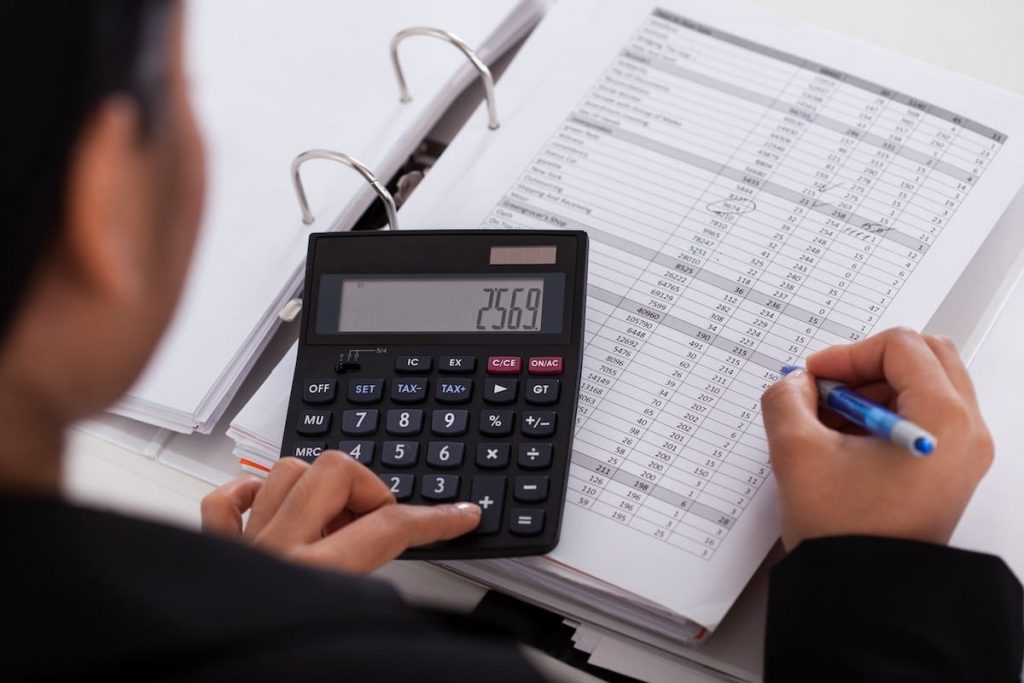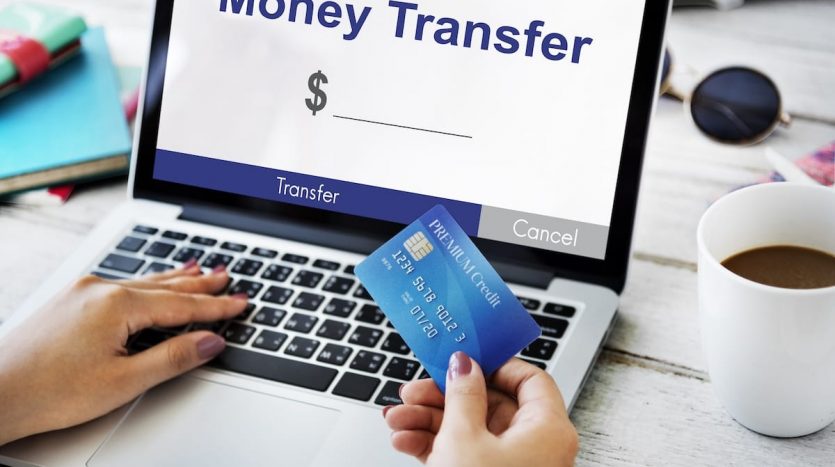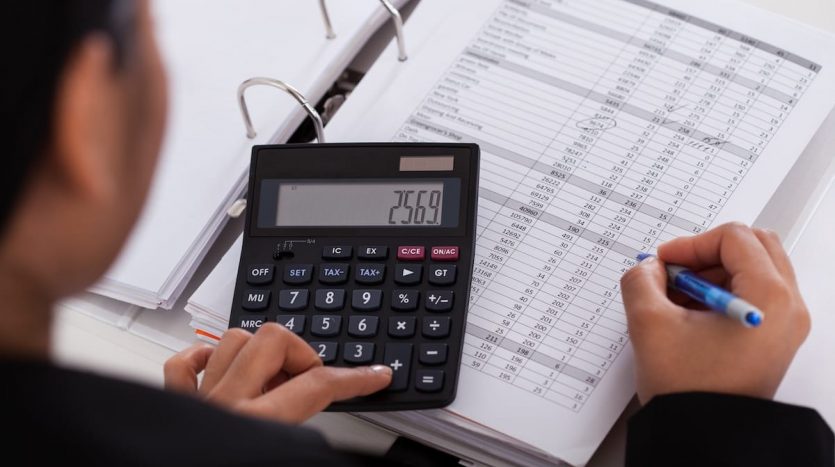Buy a Property in Thailand – Foreign Exchange Transaction Form (FET)
When purchasing property in Thailand, particularly as a foreigner, understanding the intricacies of the foreign exchange policy can be crucial. One key aspect of this process is the Foreign Exchange Transaction Form (FET). The FET is an essential document when transferring money from overseas for the purpose of acquiring real estate in the country. It serves as a record of the exchange of foreign currency into Thai Baht by a local bank, providing evidence that the funds are legally transferred into Thailand for property purchases.
The FET form, formerly known in Thai as Thor Tor 3, is issued by an authorized Thai bank appointed for handling foreign currency transactions. It specifies details like the transferred amount in both foreign currency and Thai Baht, the sender’s name, and the receiver’s name. One of the essential requirements is that either the sender or receiver of the funds must be the property buyer. The form also needs to specify the project name and the condominium unit purchased, ensuring transparency and compliance with the Bank of Thailand’s regulations.
Key Takeaways
- The FET is a crucial document for foreigners purchasing property in Thailand.
- Issued by an authorized Thai bank, the FET records foreign currency exchanges for property purchases.
- Details such as sender, receiver, project name, and unit purchased must be included in the FET form.
Foreign Exchange Transaction Form
Bringing Foreign Currency Into Thailand
When bringing foreign currency into Thailand, it must be exchanged into Thai Baht at the receiving Thai bank. As per the Bank of Thailand (BOT) regulations, all foreign currency exchange transactions must be reported and documented with a Foreign Exchange Transaction (FET) Form, which is sometimes referred to as Thor Tor 3. The FET form serves as evidence that the funds for purchasing assets like property in Thailand have come from overseas and are being converted into Thai Baht.
Currency Exchange and The Purchase of A Condominium By Foreigners
Foreigners looking to purchase a condominium in Thailand have to comply with strict regulations, as mandated by the Thailand Condominium Act. One such requirement is obtaining the Foreign Exchange Transaction Form to demonstrate that the full purchase price of the condo has been remitted in foreign currency. This not only involves the conversion of foreign currency into Thai Baht by the receiving Thai bank, but also entails mentioning the foreign purchaser’s name as the sender, receiver, or at least in the purpose of the transfer.
Changes in Reporting Requirements of Foreign Exchange Transactions (2004)
In 2004, the Bank of Thailand changed the foreign exchange transaction reporting requirements to streamline the process and provide clarity. As a result, the FET form became the primary instrument for documenting and reporting foreign currency exchange transactions in Thailand, replacing the previously used T.T.3 or Thor Tor Saam form.
Relaxation of Regulations on Foreign Exchange Transactions (2010)
In 2010, the Bank of Thailand further relaxed regulations on foreign exchange transactions to facilitate international trade and investment. Despite these relaxations, the importance of the Foreign Exchange Transaction Form has remained unchanged, as it is still required to provide evidence of funds transferred from overseas for property purchases.
Repatriating Funds to A Foreign Country
When a foreigner decides to sell their property in Thailand, they must ensure that the sales and purchase agreement, as well as the Foreign Exchange Transaction Form, are in order to enable the repatriation of funds back to their home country. The Thai Baht from the sale must be transferred to a foreign currency, and the amount repatriated should not exceed the amount initially brought into Thailand as documented by the FET form. This ensures compliance with the Bank of Thailand’s regulations on foreign exchange transactions.
Foreign Exchange Transaction Forms and the regulations they entail play a crucial role in ensuring lawful, documented transactions for foreigners buying property in Thailand. Working with a knowledgeable property agent, like BKK Homes, can ease the process, helping purchasers navigate the requirements of the Thailand Condominium Act and comply with the Bank of Thailand’s reporting procedures.

Condominium Transfer Tax Calculation
When it comes to the transfer of ownership of a condominium in Thailand, there are several taxes and fees that both the buyer and the seller must consider. These taxes and fees include transfer fees, withholding tax, business tax, and stamp duty depending on various factors and eligibility. Before you can calculate these taxes and fees, it’s essential to understand what they are and how they apply.
Transfer fees are the main costs involved in changes in property ownership in Thailand. When a condominium is sold, a transfer fee of 2% is levied, typically split between the buyer and the seller. This fee is calculated based on the appraised value of the property determined by the Land Department.
Withholding tax is a type of income tax that is payable by the seller. The calculation of withholding tax depends on the seller’s tax status, whether an individual or a company. For individuals, the withholding tax is calculated as a progressive rate depending on the income bracket. For companies, the withholding tax rate is 1% of the appraised value or the selling price, whichever is higher.
Business tax is levied at 3.3% of the property’s sale price or its appraised value, whichever is higher. This tax applies if the seller has owned the property for less than five years. Additionally, stamp duty is charged at 0.5% and is only applicable if the business tax doesn’t apply.
The transfer of ownership takes place at the local Land Department office, where the buyer and the seller or their representatives must be present. The title deed is exchanged between the parties, and the necessary taxes and fees are paid. Thailands property law requires foreigners to comply with specific regulations to purchase a condominium, such as providing evidence of a valid foreign exchange transaction.
In summary, the process of transferring the ownership of a condominium in Thailand involves understanding different taxes and fees that apply to both the buyer and the seller. Calculating these fees accurately and complying with property laws will ensure a smooth transaction for both parties involved.

FET-form, Formerly Known as Thor Tor 3 Form
The Foreign Exchange Transaction Form (FET), formerly known as the Thor Tor 3 or TT3, is an essential document in Thailand for those dealing with the exchange and transfer of foreign currencies. The FET form is a crucial document for numerous transactions, particularly when it comes to the purchase of assets like property. This document is prepared under the regulations of the Bank of Thailand (BOT) and serves as proof of the exchange and remittance of foreign currency into Thai Baht.
To obtain an FET form, an authorized bank in Thailand handles the process on behalf of the individual carrying out the currency exchange. This authorized bank is responsible for ensuring that the document is accurate and conforms to the Foreign Exchange policy of the Bank of Thailand (BOT).
When it comes to purchasing property in Thailand, the FET form plays an important role in the process. This official document verifies that the funds being used are transferred from a foreign source and exchanged into Thai Baht. Additionally, the FET form is required by the Land Office when completing a property sale transaction involving foreign currency. If the FET form is not presented, the Land Office will not proceed with the transaction.
Besides property transactions, Bank Letters of Guarantee also require the FET form. For instance, if a foreign company wants to operate in Thailand, they may need a bank letter of guarantee from an authorized Thai bank. In this case, the FET form will be necessary to prove the legitimacy of the foreign currency transaction.
In summary, the FET-form, formerly known as the Thor Tor 3 or TT3, is a vital document for foreign currency transactions in Thailand. The FET form serves as proof that foreign currency has been exchanged into Thai Baht and is required by the Land Office and Thai banks for various transactions.
Remittance out of Thailand
When dealing with property transactions in Thailand, the Foreign Exchange Transaction Form (FET) plays a crucial role. Foreign nationals purchasing a condominium in Thailand must provide an FET-form or a confirmation letter of remittance of foreign currency to the land department for registering foreign ownership.
The process begins with the remittance of funds from an overseas bank account to a Thai bank for the property purchase. To ensure the FET is issued correctly, the full purchase price of the condominium must be remitted in foreign currency and then converted by the receiving Thai bank. Moreover, the foreign purchaser’s name should be mentioned as the sender, receiver, or at least in the purpose of transfer.
Initiating an international transfer from Thailand to an overseas bank account requires certain information. These include the recipient’s account name and number, currency, and amount, recipient’s bank name and address, receiving bank’s SWIFT code or IBAN code, and the purpose of the transfer. This information helps the Thai bank and land department track the international funds transfer for the property purchase.
The telegraphic transfer method is a commonly utilized approach for sending funds out of Thailand. Depending on the Thai bank’s working hours, international funds transfer applications can be processed on the same day as the application submission. This method is particularly useful for funds transfer valued at USD 20,000 or higher, or for funds transfer serving the purpose of loans and direct or indirect investments.
In summary, remitting funds out of Thailand for property purchase involves various entities, such as overseas banks, Thai banks, and the land department. Understanding the importance of the FET and the necessary information for an international transfer ensures a smooth and efficient property transaction process in Thailand.

Purchasing Property in Thailand
What is the Foreign Exchange Transaction Form (FET)?
The Foreign Exchange Transaction Form (FET) is a crucial document for foreigners looking to purchase property in Thailand. It is required by the Bank of Thailand (BOT) to confirm that the funds for purchasing real estate, such as a condominium, have been legally transferred from an overseas bank to a Thai bank. The FET serves as proof that the foreign buyer has complied with regulations set forth by the BOT and other financial institutions in Thailand.
How to Transfer Funds into Thailand?
When purchasing property in Thailand as a foreigner, it is essential to transfer the funds from an overseas bank to a Thai bank via a telegraphic transfer or international transfer. To ensure a smooth transaction, the money sender’s and receiver’s names should match the names on the property documents, like the Sale and Purchase Agreement. Furthermore, the full purchase price of the condominium should be remitted in foreign currency, such as USD. The receiving Thai bank will convert the foreign currency into Thai Baht.
Key Considerations for A Successful Transfer
To successfully transfer funds for purchasing property in Thailand, the foreign buyer should follow these guidelines:
- Provide the purpose of transfer, e.g., buying a condominium.
- Ensure that the name of the foreign purchaser appears as either the sender or receiver.
- Acquire a Bank Letter of Guarantee or a Bank Certificate stating the deposit amount in foreign currency.
- Complete the FET form with essential information, such as buyer’s name, amount of foreign currency, receiving Thai bank account number, and property details.
Additionally, it may be helpful for the foreign buyer to open a bank account in Thailand as a property buyer, to facilitate the transaction process.
Essential Information in the FET Certificate
The FET Certificate, once issued by the Thai bank, contains several vital pieces of information that the foreign buyer should carefully review:
- The buyer’s name, which should match the name on the property documents.
- Amount of foreign currency remitted (e.g., USD).
- Receiving bank account details, including Thai bank name and account number.
- Purpose of the transfer, such as purchasing a condominium in Bangkok.
- Permanent resident status in Thailand, where applicable.
It is essential for the foreign buyer to keep the FET Certificate for their records as proof of legal ownership of the property in Thailand.

Frequently Asked Questions
What are the requirements for property transfer tax in Thailand?
In Thailand, both the buyer and seller are responsible for paying the property transfer tax. The tax is calculated based on the government’s appraised value of the property, which is generally lower than the actual market price. The buyer must pay a transfer fee of 2% and, if applicable, a Specific Business Tax (SBT) of 3.3%. The seller is responsible for the withholding tax, which varies depending on how long the property has been owned and the seller’s tax bracket.
What should one know when buying a condo in Thailand?
When buying a condo in Thailand, foreign buyers must comply with strict regulations under the Thailand Condominium Act. One important document required is the Foreign Exchange Transaction (FET) Form. Additionally, non-Thai nationals can only own up to 49% of the total condo units in a single building, and the remaining 51% must be owned by Thai nationals. It is vital to work with a reputable agent and legal advisor to ensure a smooth and compliant transaction.
How does Bangkok Bank handle Foreign Exchange Transaction Forms?
When transferring foreign currency into Thailand through Bangkok Bank, the bank will issue an FET form if the amount is over US$ 50,000. For amounts under US$ 50,000, the bank can provide a Bank Certificate, which is an alternate proof of foreign currency exchange. Both FET forms and Bank Certificates are essential for the Government Land Office to process and approve property title deed transfers for foreign buyers.
What is the process for a Foreign Exchange Transaction Form at Krungsri Bank?
Krungsri Bank, like other Thai banks, follows the Bank of Thailand (BOT) regulations for handling Foreign Exchange Transaction Forms. While the specific process may vary slightly, it generally involves transferring foreign currency into Thailand and subsequently converting it into Thai baht. The bank then issues the FET form as proof of the foreign currency exchange transaction.
What does FET stand for in Thailand’s context?
In the Thai context, FET stands for Foreign Exchange Transaction. It refers to the transfer and conversion of foreign currency into Thai baht for various purposes, such as purchasing property in Thailand.
What is the purpose of a foreign exchange transaction form?
The primary purpose of the Foreign Exchange Transaction Form is to provide proof that foreign currency was remitted into Thailand and converted into Thai baht by a local Thai bank. This form is necessary for foreign buyers or their legal representatives when formalizing the purchase of a property at the designated Land Office in Thailand. Without an FET form, the property transfer will not be approved by the Land Officer.
CONTACT US
Now that you are informed about the significance and the details of the Foreign Exchange Transaction Form (FET), nothing stands in your way of acquiring a property in Bangkok. At BKK Homes, we take pride in not only showcasing the finest real estate offerings, but also in guiding you through every step of the purchasing process. Our team of experienced real estate professionals is ready to answer your questions and provide the necessary support to ensure your transaction is as smooth as possible. If you are looking to purchase a property in Bangkok, do not hesitate to contact us. We look forward to turning your property ownership dreams into reality. Your dream home in Bangkok awaits!








